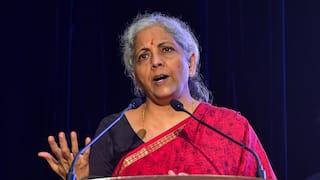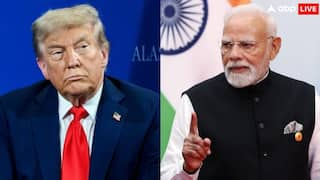Greater focus on health, nutrition can help India meet its development goals

New Delhi, Aug.30 (ANI): In advance of the 72nd session of the UN General Assembly (UNGA) to assess the world's progress against the Sustainable Development Goals (SDGs), Observer Research Foundation, in collaboration with the Bill and Melinda Gates Foundation, organised a conference to discuss India's progress against the SDGs and the criticality of addressing health and nutrition challenges for India's economic growth.
Some of the eminent speakers at the conference included AashaKapur Mehta, Professor of Economics, Indian Institute of Public Administration; Amitabh Kant, CEO, NITI Aayog; C.K. Mishra, Secretary, Ministry of Health and Family Welfare; Amarjeet Sinha, Secretary, Ministry of Rural Development; Rakesh Srivastava, Secretary, Ministry of Women and Child Development; NachiketMor, Country Director, Bill & Melinda Gates Foundation; David Wilson, Global Lead Decision and Delivery Science, World Bank; PurnimaMenon, Senior Research Fellow, IFPRI; PratapBhanu Mehta, Vice Chancellor, Ashoka University; Samir Saran, Vice President, ORF; SoumyaSwaminathan, DG, ICMR & Secretary, Department of Health Research; and Yuri Afanasiev, UN Resident Coordinator and UNDP Resident Representative in India, to name a few.
The conference underlined the need to view the SDGs in a holistic manner to accelerate progress on growth and development, and emphasised the criticality of health protection for citizens to achieve India's poverty reduction goal.
Securing domestic growth and development must constitute a central part of India's comprehensive security framework. This necessitates the adoption of a multi-dimensional development agendawhich includes a strong focus on health, nutrition and gender. In this context the SDGs provide a robust and comprehensive framework. Recent announcement by the NITI Aayog on the introduction of a 15-year vision document for India's achievement of the 2030 development goals shows strong alignment in the national planning and monitoring process with this global framework.
Through the day-long discussions, participants focused on four key aspects to meeting India's national goals.
• Providing the right institutional framework for India's growth and development
• Innovative ways of taking forward India's development agenda including through ensuring a strong system, access to skills, and financial resources
• The role of the technology platforms in bridging and overcoming the deficits of real infrastructure, streamlining processes, and at the same time becoming a new medium of delivering solutions
• Monitoring frameworks, small and big data analysis towards becoming a fulcrum of policy planning and implementation
Discussants found that it's not only about allocation of resources, but also about the design of systems, data monitoring, its capacity to make efficient use of resources, and coordinated action across sectors.
Details of the technical panels:
• India's 5 Trillion Rupee Challenge: ensuring quality health services and financial protection to all -Meeting health goals has implications on India realising its demographic dividend and its growth potential.India stands to lose $4.58 trillion due to productivity losses related to non-communicable diseases and mental health issues among other reasons and, every year, more than 60 lakh people fall under the poverty line because of health expenditure. India's growth and development potential depends on the quality of its human capital.The SDGs bring with them a comprehensive approach - the goals are intrinsically linked and focus on multi-sectoral action and emphasize equity. The session was chaired by C.K. Mishra, Secretary, Ministry of Health and Family Welfare and the session speakers included Dr. NachiketMor, Country Director, Bill & Melinda Gates Foundation; Mr. Anirudha Dutta from Capital Group andProf. Santosh Mehrotra from JNU.
• Addressing malnutrition through a multi-sectoral approach: the unfinished agenda and emerging challenges-India's high economic growth and increasing food production have not transformed the nutritional status of its population. Malnutrition has deep impact on cognitive development in children and it is estimated that investing $1 in nutrition has a return of $36 in India. To address malnutrition, a multi-sectoral approach - prioritising action across poverty alleviation, education, gender empowerment, agriculture and sanitation - is required. Joint planning to make programmes nutrition sensitive, independent implementation, and joint monitoring are the key to address malnutrition. This panel was chaired by Rakesh Srivastava, Secretary, Ministry of Women and Child Development and the panel speakers included Dr. SoumyaSwaminathan, DG, ICMR & Secretary, Department of Health Research; PurnimaMenon, Senior Research Fellow, IFPRI and Amarjeet Sinha, Secretary, Ministry of Rural Development.
• Better data for better decisions: Equity through Accountability - Lack of data often hinders effective evaluation of health schemes and reduces the scope for mid-course correction. Experience of data-use by stakeholders is critical to identify systemic constraints to evidence-based decision making in the Indian health sector. The panel discussed the need to strengthen the national statistical system to allow for goals to be tracked at disaggregated levels, use of technology to streamline processes and an integrated system which allows for analysis to be run across different data sets. The panel was chaired by Dr. David Wilson, Global Lead, Decision & Delivery Science, World Bank and the speakers included Mr. ManojJhalani, Joint Secretary, Ministry of Health and Family Welfare; Mr. Ashish Sharma, Partner, Strategy&and Prof.AashaKapur Mehta, IIPA, New Delhi.
• Integrated Solutions for Multifaceted Challenges: Role of Technology - A conversation between Amitabh Kant, CEO, NITI Aayog; Prof. PratapBhanu Mehta, Vice Chancellor, Ashoka University and Dr. Samir Saran, Vice President, ORF, on the need for India to act in an integrated manner, leveraging national initiatives like Digital India and JAM (Jan Dhan-Aadhaar-Mobile) trinity to improve development outcomes. (ANI)
This story has not been edited. It has been published as provided by ANI




























